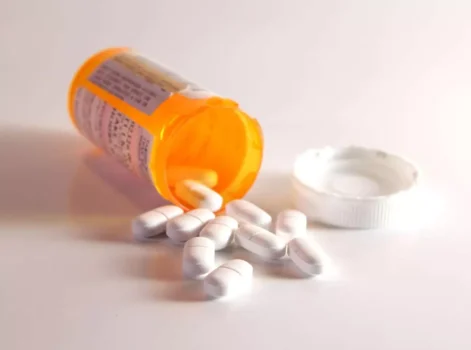
HDL is considered “good” cholesterol while LDL is classified as “bad” cholesterol, a buildup of which can be a contributing factor in a heart attack. So, in a sense, alcohol can help to create a healthy balance of good cholesterol versus bad cholesterol, further lowering the odds for a heart attack or stroke. People should speak with a healthcare professional about consuming alcohol and taking blood-thinning medications safely. A person should also speak with a doctor or access online support if they have concerns that they or someone they know may have AUD.
- However, as mentioned earlier, factors like age and overall health can affect how much alcohol is considered safe for an individual to consume.
- You may need a dose adjustment in addition to testing of your prothrombin time (PT) or International Normalized Ratio (INR).
- Investigators have used a variety of noninvasive tests to evaluate the acute effects of alcohol consumption on myocardial function and hemodynamics in healthy humans.
- Factors such as age, underlying medical conditions, and medication use can also influence the effects of alcohol on blood clotting.
- When enough liver damage has been endured there is a risk of bleeding and shock.
Health Risks and Implications

The process of blood clotting is very complex, with multiple chains of chemical reactions called the “clotting cascade” that must occur to develop a blood clot. Blood thinners slow parts of this process, making blood clots form more slowly. This helps prevent blood clots from lodging in the heart, causing a heart attack; in the brain, causing a stroke; or in the lungs, causing a pulmonary embolism. Additionally, chronic blood thinners and alcohol alcohol consumption can lead to changes in the body’s ability to regulate blood clotting. Prolonged alcohol abuse may disrupt the delicate balance of the coagulation system, potentially increasing the risk of bleeding or blood clotting disorders. Understanding how your body responds to alcohol is crucial, especially if you have a history of alcohol addiction or if you are at risk for blood clotting issues.
Are eggs high in vitamin K?
Most investigators also define the amount of alcohol that constitutes a “standard” drink as 12 to 15 g (with only slight variation). Furthermore, alcohol can weaken the immune system, making individuals more susceptible to infections and complications during the healing process. It’s important to note that the impact of alcohol on healing can be influenced by various factors, including the amount and frequency of alcohol consumption, overall health status, and individual differences. If you or someone you know is struggling with alcohol-related health issues, it’s crucial to seek professional guidance and support.
Anticoagulants

Excessive alcohol consumption can lead to increased bleeding, impaired wound healing, and other health risks. If you or someone you know is struggling with alcohol use, seeking professional help is important. Blood thinners are medicines that help your blood flow smoothly through your veins and arteries. Blood clots can increase your risk of having a heart attack, stroke, or getting other kinds of heart disease. Your doctor may prescribe a blood thinner to help prevent heart attacks and strokes if you are at risk.
- Even minor injuries, such as scratches, can damage blood vessels and cause bleeding.
- However, it is always advisable to consult a doctor or pharmacist before drinking alcohol with any new medication.
- The women’s metabolic measurements were then taken over the next 6 hours.
- For example, they’ll cause you to bleed more than usual if you cut yourself.
While blood thinners can be lifesaving, they also come with risks for potential long-term side effects and complications. If an individual experiences severe symptoms or side effects, they should consult a doctor or seek emergency help. Attending regular follow-up appointments when taking blood thinners is crucial to ensure blood thinners remain effective and safe. While blood thinners are effective at preventing blood clots, they are not without side effects. Despite often being referred to as “blood thinners,” these medications do not actually thin the blood. An appropriate INR rate varies from person to person according to their medical history.

- If you choose to drink while taking warfarin, have the combination approved by your doctor first.
- Each of those consequences can cause turmoil that can negatively affect your long-term emotional health.
- One of the oldest blood thinners still in widespread use is warfarin (Coumadin).
- They also discussed studies that indicated higher levels of alcohol consumption have associations with an increased risk of stroke, atrial fibrillation, and heart failure.
- Some studies suggest that moderate alcohol consumption may have some health benefits, such as reducing the risk of heart disease.
- If you take a blood thinner, be sure to follow your health care provider’s advice on dosing.

